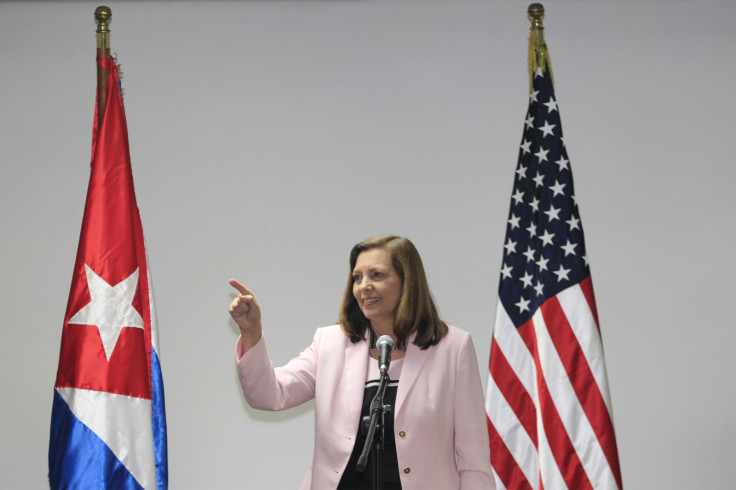US and Cuba clash over immigration policy at high-level talks

The first session of the two-day high-level talks between the United States and Cuba saw major differences over US immigration policy.
The Americans declared they would continue granting asylum to what the Cubans called a "reprehensible practice" that encouraged Cuban doctors to defect.
Besides the 20,000 Cubans given visas each year, around 25,000 came from around the world without visas in 2014 and were welcomed to the US under the American law called the Cuban Adjustment Act.
"We explained to the Cuban government that our government is completely committed to upholding the Cuban Adjustment Act, that the sets of migration-related policies that are colloquially known as wet foot/dry foot very much remain in effect," said State Department official Alex Lee, who led the US team at the immigration talks.
Josefina Vidal, who headed the Cuba team, said the policy violates a bilateral agreement to promote safe, legal and orderly immigration, reports Reuters.
The American plan to continue with its "wet foot/dry foot" policy was also opposed by Cuba on the grounds of promoting illegal immigration, trafficking and dangerous journeys across the Florida Straits on flimsy vessels.
Cubans stopped by US law enforcement at sea are returned to Cuba, while those who step foot in the country are allowed to stay, under the policy.
The US intercepted 3,722 Cubans at sea in 2014, almost double the number from 2012.
The talks seek to restore diplomatic ties between the long-time adversaries and are the first tentative steps taken after the two countries released prisoners in gestures of goodwill.
President Barack Obama has set the United States on a path toward removing economic sanctions and a 53-year-old trade embargo against the communist-ruled island.
"We are ending a policy that was long past its expiration date. When what you're doing doesn't work for 50 years, it's time to try something new," he told Congress in his annual State of the Union address.
The US delegation is led by Roberta Jacobson, the country's top diplomat for Latin America, who did not participate in the immigration discussion.
© Copyright IBTimes 2024. All rights reserved.





